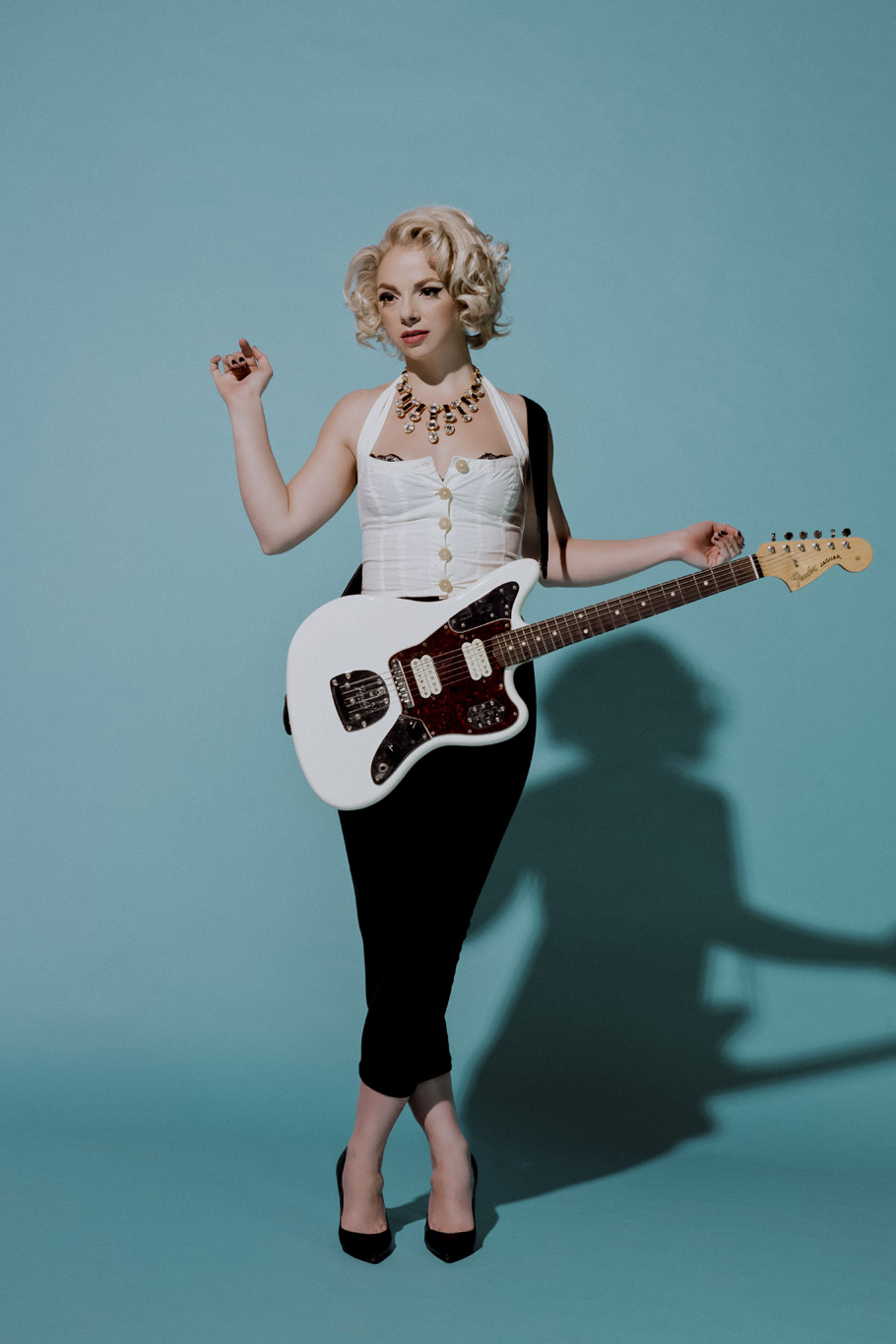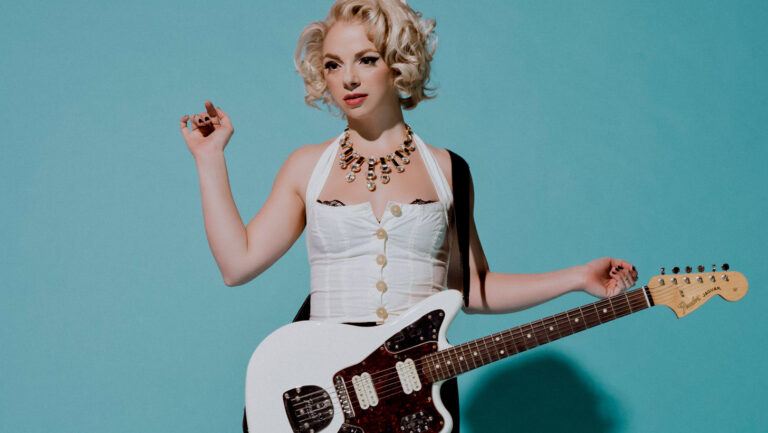Samantha Fish
Samantha Fish is a 30-year-old guitarist who came up in Kansas City, Miss. in the midst of a music community that’s deeply attached to the blues. After impressing Buddy Guy with her guitar stylings in 2013, Fish garnered critical and popular acclaim with the release of four more albums and constant touring. Her latest effort, Kill Or Be Kind, drops on Sept. 20.Weekly Alibi: Hi, Samantha, it’s August March.Samantha Fish: Right on!Cool. Do you have a few minutes to talk about your music?Sure. I came up, working my way up through the jam scene, with blues bands, at Knuckleheads Saloon. They had something going almost every night. People would go out and play and you could just kinda work on your chops.Tell me a little bit more about that experience.I started going to Knuckleheads when I was about 17, started watching and listening to the touring acts that came through. It just made me think, “Wow you can make a living making music.” So I started piecing my band together.Which musicians made an impression on you as that process commenced?There is a lot of talent in and around the city, but people like Tab Benoit would come through, bands like the [North] Mississippi Allstars, too.What was it like recording your first album, Live Bait?I just needed a product to sell at shows so I could put gas in my tank and tour my band around. I made live recordings of my shows. Every Monday night at this little bar in Kansas City, I hosted like a jam session, but it was also an hour and a half of our show at the very beginning. It was a do-it-yourself operation. It’s not in print anymore. I’ve got better records now. But it was definitely a strong start.You’re known for handling a variety of genres from the blues to straight-ahead rocanrol. Does your new album mark a change in direction, an evolution in style?Every album so far has been an evolution of style or has marked a significant change in our sound. It’s kinda been like that since the album Wild Heart. I feel like we really started changing from album to album. I think that’s my job as an artist, to be pushing the boundaries and exploring beyond what I’m comfortable with, what people are comfortable with. Those are the things that keep me interested.Do you have a favorite guitar?My SG. Right now it’s my Gibson SG. There’s nothing special about it, but it came right out of the box, ready to play.Vivalda Dula
Percussionist and singer Vivalda Dula began her storied career in the performance arts as a dancer and later founded a dance and percussion company that successfully experimented with a mix of traditional African rhythms, beats and compositional techniques with the melodic tendencies of Western classical music. After she moved to the US, her experimentalism blossomed into a singular and seamless form that employs Angolan folk music as well as soulfully styled jazz and rocanrol music, too.Weekly Alibi: Hi, Ms. Dula?Vivalda Dula: Hey, Mr. March! How are you?I’m good. Tell me a little bit about your music and career!Well, I started as an African contemporary dancer. I used to be a dancer and naturally that musical base connected with my culture. One thing led to another. I performed many concerts as a dancer and got to know the percussion world. I slowly became a musician. I don’t really talk much about myself. I talk about the roots of my tradition, to make this beautiful music.Since you’ve moved to the US, what sorts of American music have informed your playing and compositional style?The United States has absolutely influenced me. Here in the US, we have a variety of music that can be a joy to explore. I love jazz. I really love country music. Actually, I marvel at these forms and would love to jam with a jazz band or a country artist! There’s also funk! I find all of this American music very interesting, and it has become part of my music, as well. Now it’s traditional Angolan music in the funky, bluesy, beautiful style of America. In music, there are no borders and we can connect with, communicate with, anyone.What’s your favorite part of performing?I really love the people. One of the things that I really like is the interactions with the audience. I’m able to speak the same language as the the crowd. I enjoy sharing that kind of musical communication with other humans. There’s a beautiful connection there.Amanda Machon
Red Light Cameras are more than a band. They’re a phenomenon, an experience that’s akin to having your mind blown in the most poptastically rocked out way possible, with crunchy guitar licks galore coming from Mag Kim, a tight as heck rhythm section composed of Barney Lopez and Joe Gonzales and the searingly super vocals of Burqueña chanteuse Amanda Machon. The band reps this town by the river better than any other outfit in the known universe; their reputation as a party band is more than matched by the hard work and vision of the entire ensemble. Machon leads the pack and had this to say about music and related subjects.Weekly Alibi: Hey, Amanda?Amanda Machon: August?Yeah. I’m really excited to talk to you about Festival Eclectica and Red Light Cameras! Let’s start with your work as a musician and with the band.I always did performances, even when I was little. I did a lot of theater and dance, musical theater, too. But I always wanted to play in a band. My dad used to take us to all kinds of music festivals, a lot of live music performances. That’s what I really wanted to do. I played with a roots-rock cover band for years before Red Light Cameras. We did covers of Janis and Otis Redding, an Amy Winehouse tune here and there. Then Red Light Cameras hit me up.What happened then?Before we were Red Light Cameras, they were Evol Lived, that’s Devil Love spelled backward, by the way. Barney and I knew each other from school and from the theater. And he asked me to audition. There was chemistry right away. We started writing together and playing as a band, and we’ve been a family every since.So now you’re like the most popular band in Burque, for a variety of reasons including chops and attitude. And you’re a woman. Has that been harder within a male-dominated national scene?I think that yes and no, I mean it’s really frustrating when we’re on the road, and people want to talk to the boys in the band, but they won’t talk to me. And, it’s like, “Hey, man, I’m the frontwoman of the band. I want to be treated with the same respect.” But I feel like the Albuquerque scene is great though and I feel blessed in that sense. There’s equality and inclusivity and supporting each other. We have many strong female bands, too.In a lot of ways, we are culturally exceptional as far as other cities this size go.Totally. I completely agree with you. I think it has a sense of community and we really strive to support one another. When I go out of town, it’s a little bit different. I think for the most part though, you’ve got to ride or die with the thing you love, and take the good with the bad.What are your influences in life and music?One of my biggest influences is Lucinda Williams; I grew up listening to her. Sharon Van Etten is very inspiring to me right now. I’ve been listening to a lot of Lizzo because she’s very positive and about oneself. Amy Winehouse has always really moved me; Janis Joplin, Patti Smith and Blondie too; I love Debbie Harry. And I have to say Judy Garland, too. Just because of her whole story. She had to work harder than her male contemporaries and was paid less then them. I feel like we can learn a lot from her as women in the industry—where we came from and how we’ve changed.What would you tell someone from the future about the music you make with Red Light Cameras?I would say that we’re garage-pop, desert surf-rock that’s dance-y and a lot of fun. We get down, we’ve got soul. But I hope that the person who came from the future to ask that sort of question would be Prince himself.Whoa! The Purple One?Of course. And then we could discuss the band over pancakes.Festival Eclectica 2019
Feat. Samantha Fish • Vivalda DulaRed Light Cameras • Nohe & Sus Santos • Lara ManzanaresSaturday, Aug. 10 • Angel Fire, N.M.$35 to $42 • festivaleclecticanm.brownpapertickets.com/









